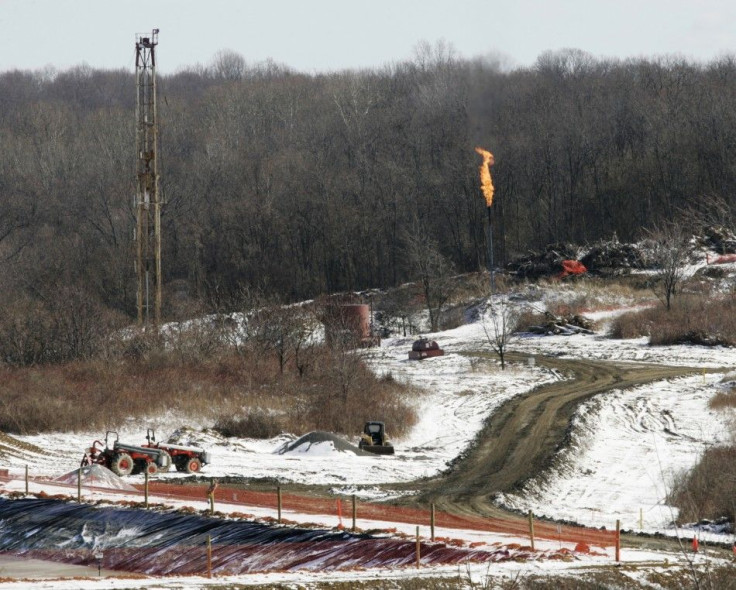Fracking Debate Complicates As Group Accuses University Of Parroting Oil Industry

In the national debate on hydraulic fracturing's safety record, the back and forth between industry groups, activist, and academic studies creates a lot of noise for the average person to sort out. But when a university is accused of misrepresenting its own data, that makes understanding the controversial drilling technique known as fracking even more challenging.
On Thursday the Public Accountability Initiative, a non-profit independent research organization based in Buffalo, New York, released a report accusing the University at Buffalo's Shale Resources and Society Institute of using academic studies as a front to promote gas industry misinformation.
The group analyzed a report the institute published on May 15, which suggested hydraulic fracturing in Pennsylvania is safer now than it was in 2008.
But in combing the report, the non-profit found the report's conclusion does not match its own data; questioned the integrity of the authors, who copied paragraphs of their own work without attribution from a previously published pro-hydraulic fracturing economic study; and said it was not properly peer-reviewed.
The shale institute has since retracted the statement their study was peer reviewed.
Serious flaws in the report suggest that the brand-new institute is not so much a venue for the independent study of fracking-related issues as it is a vehicle for industry-friendly propaganda, taking advantage of the University at Buffalo's independent brand in order to advance a very particular agenda, read the non-profit's report.
The University at Buffalo did not return requests for comment by publication time.
Based on the data compiled by the university's Shale Institute, the rate of incidents, as a percentage of wells drilled in the state, actually increased, the non-profit found. In 2008, .59 of wells drilled in the state reported an environmental incident. That number, while less than 1 percent, jumped to .8 percent by 2011.
The study also found accidents and violations in Pennsylvania decreased from 58 percent in relation to the number of wells drilled in 2008 to 30.5 percent in 2011.
Kevin Connor, director of the Public Accountability Initiative, called the report inaccurate and biased toward the oil and natural gas industry.
Timothy Considine, one of the authors of the shale institute study, said his report is not biased and based on data, and is open to anyone's interpretation.
Considine said his report separated the major environmental accidents from the minor ones and found that from 2008 to 2011, the industry was responsible for 25 incidents, which included well blowouts and unlawful discharges in creeks and rivers.
The most important thing is that the number of major environmental impacts [out of total environmental impacts] is below one percent, Considine said, who also helped author a 2011 study on potential economic impacts and benefits of shale drilling in New York. [The report] is an information piece. We didn't go so far as to say the industry caused no impacts. They caused 25. I think the data speaks for themselves.
© Copyright IBTimes 2024. All rights reserved.





















